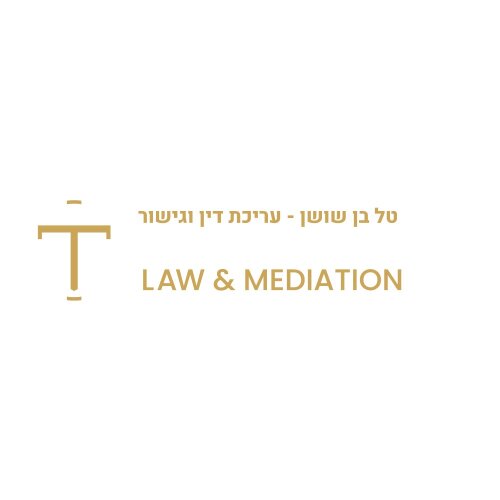Best Private Equity Lawyers in Rishon LeZiyyon
Share your needs with us, get contacted by law firms.
Free. Takes 2 min.
List of the best lawyers in Rishon LeZiyyon, Israel
About Private Equity Law in Rishon LeZiyyon, Israel
Private equity is a dynamic and important sector in Israel, with Rishon LeZiyyon being part of the country’s vibrant business ecosystem. Private equity involves investment funds and investors directly investing in private companies, or conducting buyouts of public companies resulting in their delisting from stock exchanges. The legal landscape governing private equity in Rishon LeZiyyon aligns with both Israeli national law and international standards, making it vital for participants to have a clear understanding of local legal requirements and best practices.
Why You May Need a Lawyer
Engaging in private equity transactions can be complex, especially for those unfamiliar with the Israeli legal framework. You may need a lawyer in the following situations:
- Structuring and negotiating investments or acquisitions
- Drafting the terms of partnership agreements and shareholder agreements
- Conducting due diligence on target companies
- Navigating compliance with Israeli securities, antitrust, and corporate laws
- Resolving disputes between investors, managers, or partners
- Advising on tax planning strategies related to private equity deals
- Assisting with exits such as IPOs, mergers, or takeovers
A local lawyer ensures that your transaction complies with all legal requirements and helps mitigate legal and financial risks.
Local Laws Overview
Private equity activities in Rishon LeZiyyon are governed by Israel’s national laws and regulations, which cover several critical aspects:
- Companies Law (1999) - Regulates corporate governance, shareholders’ rights, director duties, and the formation and management of Israeli companies.
- Securities Law (1968) - Oversees public offerings, reporting obligations, and investor protections involving securities transactions.
- Antitrust Law - Ensures merger control and prohibits anti-competitive conduct. Mergers and acquisitions might require approval from the Israel Competition Authority.
- Tax Ordinance - Addresses capital gains taxation and other fiscal aspects associated with private equity transactions.
Local municipal regulations typically affect business registration, real estate holdings, and employment laws as they pertain to companies operating within the city.
Frequently Asked Questions
What is private equity and how does it differ from venture capital?
Private equity involves investing in or acquiring companies at various stages, often for buyouts, restructuring, or growth, while venture capital typically targets early-stage startups. Both play roles in the Israeli economy, but private equity deals are often larger in scale.
What types of entities can investors use for private equity deals in Rishon LeZiyyon?
Common structures include limited partnerships, limited liability companies, and investment funds. The appropriate structure depends on deal size, investor profile, and intended tax treatment.
Do private equity transactions require regulatory approval in Israel?
Some transactions, such as significant mergers or acquisitions, may require approval from regulatory authorities like the Israel Competition Authority or the Securities Authority, especially if they affect competition or involve public companies.
Are there specific tax considerations for private equity investors in Israel?
Yes, private equity transactions can have complex tax implications, including capital gains tax, value-added tax (VAT), and possible treaty benefits for foreign investors.
What is due diligence and why is it important?
Due diligence involves investigating the legal, financial, and operational aspects of a target company before investing. This process helps identify risks, liabilities, and potential deal-breakers.
Can foreign investors participate in private equity deals in Rishon LeZiyyon?
Yes, Israel encourages foreign investment, but foreign investors must comply with local regulations regarding company ownership, taxation, and cross-border fund transfers.
What role do lawyers play in private equity exits?
Lawyers help structure and negotiate exits, such as sales, public offerings, or mergers, ensuring compliance and protecting investor interests throughout the process.
What risks are involved in private equity investments?
Risks include market volatility, regulatory changes, company underperformance, and disputes between partners or shareholders, all of which require careful legal assessment.
How long does a typical private equity transaction take in Israel?
The timeline depends on deal size and complexity, but most deals require several months, including time for negotiations, due diligence, regulatory approvals, and closing procedures.
What is the minimum investment required for private equity participation?
There is no legal minimum, but most private equity funds set internal minimum investment thresholds, which can vary widely depending on fund strategy and target investors.
Additional Resources
For further guidance and information, the following resources may be helpful:
- Israel Securities Authority (ISA) - Regulates securities market activities and public offerings.
- Israel Competition Authority - Oversees antitrust and competition matters in mergers and acquisitions.
- Rishon LeZiyyon Municipality - Provides local business registration and licensing information.
- Israel Bar Association - Can help find qualified lawyers specializing in private equity and corporate law.
- Tax Authority of Israel - Offers guidance on tax compliance for investors and businesses.
Next Steps
If you are considering a private equity transaction or investment in Rishon LeZiyyon, it is highly recommended to consult with a local lawyer experienced in private equity matters. Begin by outlining your investment goals, potential targets, and any questions you have. Reach out to a law firm or legal advisor that specializes in corporate or investment law, request an initial consultation, and be prepared to discuss the specifics of your needs. This proactive approach will help ensure your interests are protected and your investment is compliant with all relevant regulations.
Lawzana helps you find the best lawyers and law firms in Rishon LeZiyyon through a curated and pre-screened list of qualified legal professionals. Our platform offers rankings and detailed profiles of attorneys and law firms, allowing you to compare based on practice areas, including Private Equity, experience, and client feedback.
Each profile includes a description of the firm's areas of practice, client reviews, team members and partners, year of establishment, spoken languages, office locations, contact information, social media presence, and any published articles or resources. Most firms on our platform speak English and are experienced in both local and international legal matters.
Get a quote from top-rated law firms in Rishon LeZiyyon, Israel — quickly, securely, and without unnecessary hassle.
Disclaimer:
The information provided on this page is for general informational purposes only and does not constitute legal advice. While we strive to ensure the accuracy and relevance of the content, legal information may change over time, and interpretations of the law can vary. You should always consult with a qualified legal professional for advice specific to your situation.
We disclaim all liability for actions taken or not taken based on the content of this page. If you believe any information is incorrect or outdated, please contact us, and we will review and update it where appropriate.










